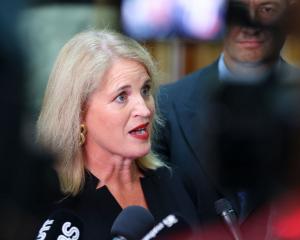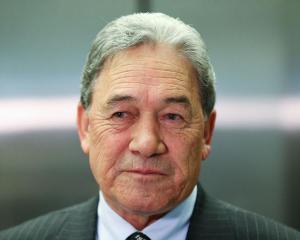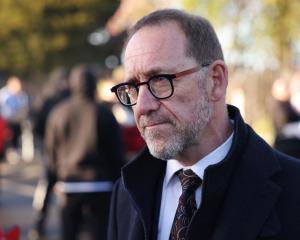
Newspapers today reported details provided to them by Social Development Minister Paula Bennett of more than 300 families who draw about $1000 a week in benefits. An audit of the group was started earlier in the year.
The cases are being publicised before the Government brings in previously announced tough new measures next year which will impact on many beneficiaries including: work-testing for domestic purpose beneficiaries whose youngest child has turned six; compulsory budgeting advice sessions for beneficiaries who claim frequent grants; and part-time work obligations for some sickness and invalid beneficiaries.
The Government would suspend or reduce benefits for those who refuse to comply with requests to attend work interviews or take up work opportunities.
Fairfax newspapers reported Marcia Harris and her husband, former gang leader Darryl Harris, have claimed unemployment and sickness benefits continuously since 1984.
Three of the couple's four children are on benefits. The family got $30,000 in special-needs grants since 2000, including $16,000 in the past two years. Grants went towards car tyres and a pool fence at one of several properties the family owns in Christchurch.
Mr Key said most beneficiaries needed the money but there were exceptions.
"That's one of the things that worries me about the system," he told Newstalk ZB this morning.
While the bulk of recipients needed their benefits and did not abuse the system the Government would implement changes to crack down on those who abused it, he said.
The Harris family got the money for the pool fence saying they needed it in order to sell the property.
Mr Harris gets a sickness benefit and attempts to stop it recently failed when a Work and Income designated doctor said he was addicted to cannabis.
Ms Harris has been told to repay some benefits including one to pay for her car to be released after being impounded. She was driving without a licence at the time.
Work and Income paid for the family to spend 10 nights at a Christchurch hotel, the Towers on the Park, in 2007 after their Islington home burnt down, a review of the family's case found.
Since then the family has been transferred to a special "remote monitoring" unit. The unit deals with Work and Income clients deemed too dangerous for face-to-face meetings with staff.
The grants have continued, with three of the six special-needs grants applied for last month by the Harris family accepted by Work and Income.
The New Zealand Herald reported 13 of the 20 highest-paid beneficiaries, and almost one-third of those who get more than $1000 a week from the state, were looking after other people's children.
The highest paid was a single person on the East Coast, who gets $1720 a week, mostly in orphans and unsupported children's benefits to care for nine children.
The second is a married Northland person, getting $1700 a week to care for 10 children, most from other parents.
The 323 beneficiaries being audited have an average of five children, 97 were looking after other children as extended family or foster parents.
The third-highest payment went to grandparents caring for eight children, including those of their son. The grandfather was also being paid the invalids benefit.
Six of the top 50 had benefits reduced after the review, usually because a child had left their care or extra work cash was coming in.
Only one of the top 50 had since gone off the domestic purposes benefit into full-time work, although several were in training or study.










